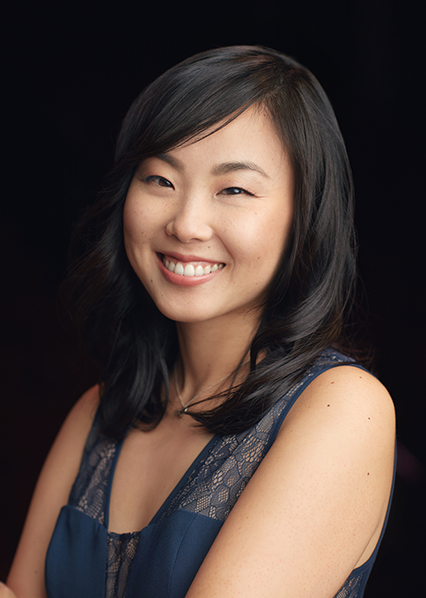Before joining us at Opus 1, you taught as a college professor for several universities in Texas. What similarities and differences have you noticed with students here at Opus 1 and your time in Texas in a college environment?
The biggest similarity I’ve found is that everyone comes to their lesson genuinely excited to grow in their musicianship. My college students always attended lessons and group classes with enthusiasm, but they were often so overwhelmed with all the other courses a music major degree requires that piano sometimes took a second seat, especially for my secondary students. On the other hand, I have found that students at Opus 1 are consistently dedicated and strive to reach their fullest potential at the piano.
You recently gave a stunning 40-minute performance of Beethoven’s Piano Concerto No. 3 with the Orchestra of the Incarnate Word under conductor Terence Frazor (video posted at the bottom of this article). Can you share your experience preparing for such a virtuosic performance and how was your experience performing with the orchestra?
Preparing for this particular performance was one of the most challenging things I’ve ever done. I had 5 months to prepare this piece having never played it before and in the meantime maintained a teaching load of 60 students among the different universities and my private studio and had other musical activities on weekends. I didn’t have time to practice so I made the time by practicing even if just for 15-30 minutes here and there before my teaching day started, in between lessons, during my lunch and dinner, and at the end of each night.
Those 5 months truly put me to the test in terms of concentration, discipline, and work ethic, but performing with the orchestra was one of the most exhilarating moments of my life and all the hard work was worth it. Making music with so many people was such a powerful experience. It really forced me to perform and to express outwardly. When I performed with the orchestra I tried to imagine the people sitting in the last row of the hall and tried my best to perform so that the people sitting in the very back could feel every emotion I was trying to convey and could understand the story I was trying to tell through the music.
It’s hard to summarize all of your accomplishments, but in addition to your time as a college professor, earning your doctoral, master’s, and bachelor’s degrees in piano performance, you’ve also performed extensively, judged for a long list of competitions, presented as a guest lecturer, won multiple awards and scholarships, and even served as the Assistant Director for the Musicians Wellness Forum (not to mention the publication of your practice journal). What advice can you share with our Opus 1 students on the skills and habits that allowed you accomplish so much in your career as a musician and teacher?
I think the skill that helped me the most in my career was developing my problem solving skills. As a pianist, teacher, judge, lecturer, assistant director, and creator, I’m constantly asking myself questions like, “How can I play this phrase more musically?” or “How can I motivate this student to practice?” or “How can I best prepare a student for this exam or competition?” I try to approach the problem in a variety of ways until I figure out what works best for me and then work hard to follow through. Students can develop these same problem-solving skills in their practice at home by recording musical problems they encounter and by keeping track of the different practice techniques they used to successfully fix the problem so that they can refer back to what helped them tackle the problem in the past.
One of the biggest reactions you encounter from parents, students, and audiences is how you’ve accomplished so much in your lifetime and earned a position as a Level III Master Teacher but seem so young. In the music profession, this is largely attributable to an amazing degree of talent and hard work. How do you respond to people who are so surprised by achievements at a young age?
I am flattered. I’ve worked really hard and put in so many long days and nights to accomplish what I have. I think part of my achievements have come from saying yes to every opportunity even if it wasn’t the convenient choice and working hard to make it work because I just wanted to surround my life with music. Throughout my decade in Texas I followed through on opportunity after opportunity so that during my last year there I taught at three universities in three different cities and filled my nights and weekends collaborating with students and guest artists from abroad in concerts, traveled to judge competitions, and gave lecture recitals. There is no limit to what you can accomplish at any age if you are willing to say yes and to put in the work it will require to be successful.
To end, what is one recommendation you can give students that will help them be successful with their music education?
Beyond what I’ve already mentioned before regarding work ethic and problem solving, I think the best thing you could do for your music education is to surround yourself with music all the time - attend concerts, listen to classical music, watch documentaries or read about your favorite composers and musicians. Be disciplined with the tasks in front of you and then let your curiosity lead you.

